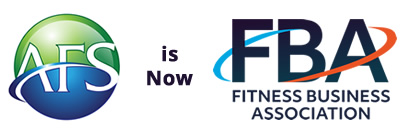
By Mike Jesowshek, Special AFS Contributor
Happy New Year! Welcome to tax season.
Sorry to bring you down right away with tax season information but my hope here is to actually provide you tools and ideas to make this tax season stress free. We are going to go through some things you can do early here in 2023 to make this tax season a breeze.
Before beginning, the number one thing I can say is be proactive. Get your documents and financials in order right away. That doesn’t mean you need to file immediately, it just means you can gather everything and be prepared so that you are not scrambling down the road.
What Does My Accountant Need for my Business Tax Return?
First things first, if you have a partnership or an S Corporation your business is considered a flow-through entity which means you'll need to prepare your business return first and then report the income from that on your personal return via a K1.
If you are setup as a sole proprietorship or single member LLC, then you will file your business activity directly on your personal tax return via a Schedule C.
Here are some action items to be prepared for your accountant:
- Complete Your Bookkeeping ASAP and Wrap Up 2022
- The last thing you want to be doing is thinking about 2022 deep into 2023. Bite the bullet and get your bookkeeping completed now so you can start preparing your tax return. If you are a client of IncSight, make sure you complete all transaction questions.
- To best prepare your tax return you should have a fully completed income statement (aka profit and loss) along with a balance sheet.
- Gather Documents
- Receipts: Gather all of your receipts for 2022 and put them on file should you need them down the road as backup support. I recommend taking pictures of them and filing them digitally (Google Drive, Dropbox, HubDoc, etc.)
- Bank Statements: These will be good to have on file should you need to go back or submit them to the IRS down the road.
- Loan Documents/Balances: You will want to ensure any loans on your balance sheet match the balance your bank shows. Make sure you have interest separated from principal. The interest portion would show up on your income statement as an expense and the principal portion should offset your balance of the loan on the balance sheet.
- Asset Purchases or Sales: If you made any asset purchases (not already on the books) or sold any of your assets throughout the year, be sure to alert your accountant.
- Complete Accountable Plan: Complete the accountable plan for your business and add that activity to your books. Learn more about accountable plans.
What Does My Accountant Need for my Personal Tax Return?
Now that we are into a new year you will be getting a ton of documents in the mail, your email, etc. You will want to ensure you put everything you receive on file. You are better off sending more to your accountant than less. Your accountant will know what is necessary or not and can sort through that on their end.
One important thing is to try and get all of your documents together in one place and then send it to your accountant as one package. If you send your accountant various documents randomly as they come in, it would lead to information being missed or lost.
Here are some action items to be prepared for your accountant:
- Gather Documents – Here are the documents to gather:
- Last years tax return
- Payroll Documents
- Various Forms Tax Forms:
- W2 (Wages)
- 1099s (Many different types): Non-Employee Compensation (1099-NEC), Interest (1099-INT), Dividends (1099-DIV), Stocks (1099-B or 1099-COMP), State Refunds or Unemployment Compensation (1099-G), Pension or Retirement (1099-R), Social Security Administration (SSA-1099), HSA Activity (1099-SA)
- 1098 (Mortgage Interest)
- K1s from Partnerships, S Corporations, Trusts, or Estates
- If you are an investor in another company or real estate deal there is likely a K1 you will be waiting on. This is one that we often see individuals forget about.
- 1095-A, B, or C for Health Insurance
- Student Activity: 1098-E (Student Loan Interest) or 1098-T (Tuition Paid)
- Real Estate Taxes Paid
- Medical Expenses
- Charitable Contributions
- Child Care Expenses
- Estimated Taxes Paid
Again, as these documents come in, put them in a digital file right away. Once you have all of your documents, give that file to your accountant. If you are just waiting on one or two lingering documents, feel free to send over what you have to your accountant and just ensure they know you are still waiting on a document and explain to them what that document is.
What are the 2022 Tax Year Due Dates?
Keep note of these important due dates.
- January 16, 2023
- 4th Quarter 2022 Estimated Tax Payments Due
- January 31, 2023
- W2 Forms Due
- 1099-NEC/MISC Forms Due
- March 15, 2023
- S-Corporation Tax Returns (or extensions) Due
- Partnership Tax Returns (or extensions) Due
- Multi-Member LLC Tax Returns (or extensions) Due
- April 18, 2023
- Personal and Single Member LLC Tax Returns (or extensions) Due
- C-Corporation Tax Returns (or extensions) Due
- Deadline for IRA and HSA Contributions for 2022
Tax season is often a stressful time of the year for business owners and things are often completed as the last minute. It does not have to be that way.
Make tax year 2022 the year that your taxes are stress-free and easy so you can focus on your business!
InsSight is the official accounting firm of the FBA! Check them out here.
Mike Jesowshek, CPA is the founder of the accounting firm IncSight. Mike has a strong passion for both fitness and technology as his firm helps provide digital accounting, bookkeeping, and tax solutions for studio and gym owners. With clients all over the U.S., his goal is to help these businesses pay the least amount of taxes as legally possible while helping them grow personally and professionally.


Join the Conversation!